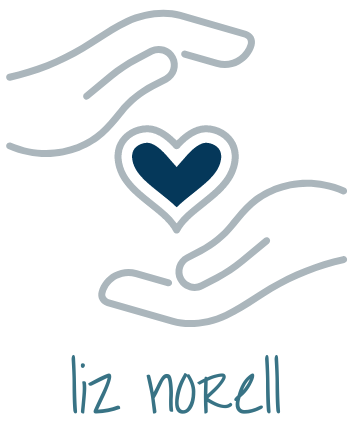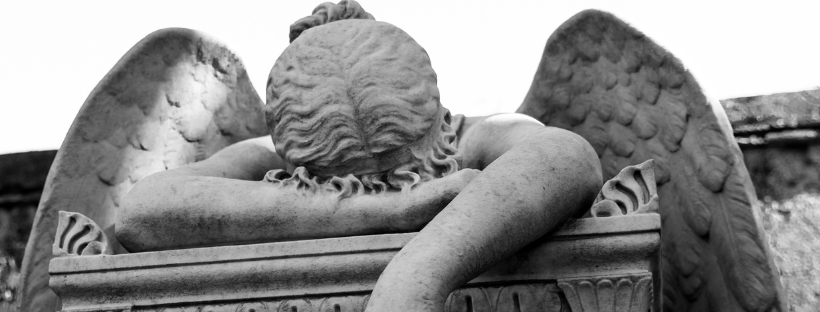It took me less than 24 hours at the Braver Angels convention in Gettysburg, Penn., this week to grasp—in a visceral and disappointing way—that the organization and I are not a good fit. I boarded a plane to take me home only a few hours later, flooded with questions about whether I had failed the organization—or if the organization had failed me. I’m still not sure.
Braver Angels is a commendable national movement to foster civil dialogue across political differences. That one sentence is my own perception of the organization’s mission and core commitment, and it’s the perception that had me clamoring to register for their first large-scale national convention. (They have had meetings before, pre-COVID, but I’m told they were much smaller.)
When I applied to attend, I encountered my first point of resistance with the organization: They required, to a person, an equal balance between “reds” and “blues”—those who lean right and left, respectively. Unless I could recruit a person whose leaning was opposite to mine, I’d just have to wait to find out if I could attend.
No worries! I called up a longtime friend who is the most reasonable example I know of someone who leans in the opposite direction. He was only too eager to participate, as he has an idea he’s been trying to get some support for/traction on for literally as long as I’ve known him, and the BA convention felt like a breeding ground for the people who’d be on board. We registered, booked our plane tickets, and started anticipating the early-July convention.
I think it’s fair to say that the BA convention was the least organized national meeting I’ve ever attended—and I don’t say that to be overly cruel; it’s simply true. To be fair, my sense is that a lot of the people who work for (or volunteer for) Braver Angels honed their organizational skills in political parties and campaigns, which are notoriously decentralized and ragtag operations. Only once in my life did I give that kind of advocacy work a try, and I was so horrified that I spent an entire Saturday afternoon arguing with a dozen other people about the font we should use for a campaign button that I immediately dropped out of that scene. The kind of people who have an appetite for that kind of debate, inflating relatively trivial matters to knock-down, drag-out fights, just aren’t my people.
With respect to the BA convention, for example, we filled out housing request forms—the convention was held at Gettysburg College, and on-campus housing was available—months in advance. It asked the normal questions about room preferences, roommate requests, and needs for accommodations. I asked for an accommodation and assumed, given that I’d been pretty open with respect to roommates and such, this wouldn’t be an issue. I received my housing assignment 48 hours before the event, and the accommodation request was not honored. (I’d asked for no stairs and assigned a third-floor room in a building with no elevator.) Yikes, y’all.
This was BA’s first experience with a convention large enough to make breakout sessions possible. They were accepting proposals for breakouts on what seemed to be an entirely informal and rolling basis, with no call for proposals that I ever saw, no deadline, no parameters. The slate of breakouts was announced a couple of weeks in advance of the gathering, and we were asked to fill out another form indicating our first, second, and third choices for each time slot. They then, presumably manually (?), assigned us to sessions and populated our conference app schedules. Was this to maintain ideological balance within sessions? Was it down to room capacities? I have no idea; they never told us. A session I was desperate to attend was left off my schedule; another that I really had no interest in attending was added, simply because there was no way to indicate on the request form that I wouldn’t be attending a session during that slot.
All of these feel like semi-petty complaints about an organization experiencing some growing pains. None of these were the reasons I left early. They’re merely data points I collected along the way that contributed to my growing sense that I was in the wrong-for-me place.
And that’s because I’m neurodivergent. Specifically, I have autism and (as do most autistic people) very high anxiety. I have three different prescriptions for medication to manage my anxiety, and it’s a daily struggle to know when and how to use them.
The first event of the convention was a melee—a free-for-all dinner in the campus dining hall, wherein they tried to feed upwards of 500 people in a 60-minute time slot with food court-like stations. (They did later expand the window to 75 minutes. Still not enough.) I wandered into that dining hall and was immediately assaulted by a flurry of human bodies moving in every conceivable (and unpredictable) direction at once. There were no clear signs indicating what was where. No directions. I scanned my meal card and was dumped into the fracas. My early-warning systems for a meltdown began firing.
I wasn’t actually all that hungry, but I’d RSVP’d to have dinner with the four or five other Tennesseans in attendance, so I wanted to try to find them. Ahead of time, we’d been told there would be signage on tables to find our groups, but after wandering through the throng of people a couple of times and seeing nothing, I abandoned that mission entirely. Instead, I found an uncrowded small buffet with cut up fruit, ladled a few chunks onto a plate, grabbed a bagel to toast and smother with butter, and found a table where I could plant myself.
After about 15 minutes in that disaster zone, I decided to head over to the ballroom where, in an hour, the opening plenary was set to begin. I’d hoped to find a chair in a corner where I could sit quietly and recenter myself. When I arrived at the ballroom, however, I was turned away, with one of the convention team telling me that they were doing a sound check and doors would open 15 minutes before the start time.
That was the last chip to fall, the proverbial last straw, the thing that sent my tenuous grasp on my keep-it-together-Liz state. I had to center myself. If I let myself spiral into shame over the impending meltdown, it would only prolong things. So I found a place to sit in relative peace, turned on a small rechargeable fan I’d brought, took a Klonopin, and let myself cry. There were people everywhere, and I’m sure they wondered what on Earth was wrong with me, but this barely registered. I focused on my breathing, fanned myself with an Asian-style fan, kept the fan aimed at my face, and just let the feelings wash over me.
When I got into the ballroom, the chairs were all connected in that way that conference organizers insist upon, presumably to keep the rows and aisles neat—but that anyone with sensory overload struggles knows is our worst nightmare. I spent no less than ten whole minutes figuring out how to wrestle a chair away from its neighbor. Once I did, I placed the chair with its back to the exterior wall, took small sips of water, and again focused on my breathing.
I could recognize that all of my challenges thus far were logistical and related to a lack of accessibility. While not forgivable, these weren’t things that got to the heart of the mission or core work of the Braver Angels organization itself. I did my best to remain open-minded about what would unfold.
Braver Angels began to lose me when its cofounder, David Blankenhorn, spoke at the end of the opening plenary. He emphasized how the organization absolutely had to remain committed to ideological balance—by which he meant, explicitly, ensuring an equal number of reds and blues.
It’s taken me a few days of self-reflection to arrive at the conclusion that I think this is misguided and self-defeating. I don’t agree, and it’s why I’m now calling myself a fallen angel.
At check-in, the first thing I was given was a color-coded lanyard that communicated, in an obvious and immediate way, which way I lean (red or blue). Everyone was. This means the first thing people knew about me wasn’t my name, nor my home state, nor anything at all about me—it was whether I lean red or blue. I hated it. I was so uncomfortable wearing that stupid lanyard.
It’s one thing to believe that people with different ideological commitments can and should talk to one another. It’s another thing entirely to surface those differences as a preliminary matter. As a college professor of American government and politics, I completely eschew sharing my beliefs with my students. I think doing so is counterproductive. Perhaps in a less polarized, less hostile-in-its-division country, leading with your ideology wouldn’t be an issue, but in America today—even among those who ascribe to a philosophy of civil dialogue across differences—it’s a fool’s errand to think that you can signal your team (red or blue) and have someone else listen with an open mind. More than that: It flies in the face of everything we know about social identity, human cognition, and group dynamics.
It was fascinating to me that the Braver Angels convention imposed a quota system for attendees less than a week after the Supreme Court, at least in practical terms, struck down affirmative action in higher education. If we want to achieve Martin Luther King Jr.’s dream of judging others by the content of their character—and I believe Braver Angels is deeply invested in recognizing our common humanity, in alignment with MLK’s vision—then why, why, WHY would we lead with the color of our partisan leanings?
None of this makes sense to me.
But again, these are not debilitating critiques, at least they didn’t feel debilitating to me at that opening plenary. I was uncomfortable with my lanyard and worried about the implications of Blankenhorn’s emphatic statement of BA’s principle of numeric ideological balance, but I wasn’t ready to (literally) check out just yet. That came the next day.
After staying up way too late doing some work for my job back home, I skipped out on the first day’s breakfast (see: dining hall melee) and the first part of the morning plenary. But I was so excited—SO excited—about my first breakout, which was billed as a discussion on the past, present, and future of toxic media. As a recovering journalist (my undergraduate and first graduate degree are in journalism, and I taught journalism for a short time) and a political scientist, this was the intersection of media and politics that I was looking forward to exploring with the people in my breakout session. The speaker was a professor, and I hoped/expected there would be a robust discussion in which we talked about how to identify less toxic sources of information in an effort to create the world we want to see.
Instead, the speaker’s laryngitis meant her husband, a red-lanyard-wearing political science professor (they exist!), gave her talk for her, interjecting his own thoughts freely as he read her prepared remarks. It was … fine. There wasn’t anything groundbreaking in their review of the history of media or the commentary about how and why media sources have, for most of our history, been fairly explicitly partisan. There was some hand wringing around social media (because of course there was). No suggestions, no hopeful advice on how to create a better media landscape, and then we had nearly an entire hour for Q&A and discussion.
When the speaker’s husband asked if anyone had thoughts, nearly every single hand in the room went up. I sighed and cringed. I could see the train wreck coming—and it did.
I didn’t count lanyards, but the room felt like a pretty good mix of reds and blues. The comments, however, fell into a few clusters:
- Gen Z doesn’t use media the way previous generations have, and that means they are poorly informed and have terrible information-gathering habits. They also weren’t at the convention, it was asserted.
- Media sources are dominated by liberals. This is probably the fault of journalism schools indoctrinating students into leftist ideologies. “Why won’t journalism schools graduate more conservatives?” one red-lanyard-wearing woman asked.
- Where CAN I get trustworthy news? Who’s reporting on the things that the mainstream media don’t want us to know about?
- Here are some really great resources that, coincidentally, I happen to run!
Honestly, it all exhausted me. There was no listening; there was no curiosity; there was no actual discussion of how to improve. It was the same old talking points I would’ve heard in a twitter discussion about media in America today—everyone there with their own ideological axe to grind (or web site to promote).
My fall from grace as a Braver Angel happened towards the end of the session, though. The moderator—again, the (White, male) political scientist married to our speaker—called on a young Black woman (also in a red lanyard) in the front row who challenged the people who’d made points in the first cluster. She is a Gen Zer who said she’s got great information-seeking skills. She explained that she just asks Siri to answer a question, and then she evaluates the information the search returns. The following exchange happened roughly like this (I didn’t record it or take verbatim notes, so this is my memory of what unfolded):
Speaker: What if you wanted to know about the causes of the Korean War? Do you know anything about the Korean War?
Woman: It was … in Korea?
Speaker: (chuckling) Anything else?
Woman: Not really. It’s never really come up for me.
Speaker: So how would you find out, if you needed to know?
Woman: I’d ask Siri.
Speaker: And you’d just TRUST what Siri said?
Woman: I’d read the first several sites that came up, figure out what the common points were, maybe like 3-5 bullet points, and then I’d know more than any of my friends. I’d sound like an expert if I were talking to someone else about it.
Speaker: That’s it?!
Woman: What’s wrong with that? It’s not like I really care all that much about this.
Speaker: OK then. I’m going to be politically incorrect and ask what you know about the history of slavery.
Woman: (blank stare)
Speaker: How would you find out about that?
Woman: Same process.
Speaker: And you would just TRUST Siri to give you the right answers?
Woman: By looking at several sources, yes.
My mouth fell open, and it was all I could do not to speak up. I went to library school; I have a Ph.D.; what this woman was describing is how we all conduct the first step of a research process. If we need to go more deeply, we will; but to answer a basic historical question of that breadth? Her strategy sounded pretty damned smart to me.
Yet the room, populated with middle-aged (or older) people, openly mocked her. The audience was equal turns exasperated with what they clocked as her naivete or horrified that she didn’t know more about the Korean War.
Meanwhile, I was horrified that this college professor with all the power in the room—he was the moderator, after all!—was deriding her historical knowledge and her information-seeking process, publicly, in a room with a bunch of White people clearly disappointed in her answers. Ideology meant nothing to me here; he was a bully, and the audience, in not speaking up (myself included) was complicit.
I was so ashamed of what had happened, I sat in my seat and got on my airline’s mobile app. I changed my flight right there, in the room, and flew out of the state about seven hours later. I couldn’t handle the abuse of power, the lack of respect, the mocking, all of it. I did not come to Gettysburg to sit by while this happened.
The Braver Angels Way (from their web site) is:
- We state our views freely and fully, without fear.
- We treat people who disagree with us with honesty, dignity, and respect.
- We welcome opportunities to engage those with whom we disagree.
- We believe all of us have blind spots and none of us are not worth talking to.
- We seek to disagree accurately, avoiding exaggeration and stereotypes.
- We look for common ground where it exists and, if possible, find ways to work together.
- We believe that, in disagreements, both sides share and learn.
- In Braver Angels, neither side is teaching the other or giving feedback on how to think or say things differently.
I heard the conference chairs remind us just before that breakout session to listen, to be willing to be wrong, to treat others with respect, to engage our curiosity, to learn. What I saw in that singular breakout violated most of these community norms.
The only reason I would’ve fared better than the woman who spoke up, had the moderator’s questions been fired in my direction, is that I’ve had to teach the Korean peninsula, so I’ve had to learn. At no point in my high school or college education did we learn any American or world history past World War II. In fact, this was my biggest complaint about the way history was taught in my own education; it was all these relatively old battles (the Revolutionary War, the Civil War, and World War II) and nothing about the events that actually impacted my parents’ lives and the lives of those serving in government during my lifetime—Vietnam, Korea, Watergate, and the Iranian hostage crisis. I only know what I’ve taught myself about these pivotal moments. Do my current college students learn about 9/11? About the “war on terror” in Afghanistan? About the election of 2000 and the 36-day delay on certifying a winner? My firsthand experiences teaching them for nearly two decades suggests they don’t know much about any of that. If I say “9/11,” they know what that is—but they have appallingly shallow knowledge of the details.
Braver Angels has a laudable mission, but the little I saw in Gettysburg tells me that it’s not the organization I’d hoped it was. Perhaps it will become that way, but I don’t have naïve optimism that might change anytime soon.
For now, though, I’m a fallen angel.





